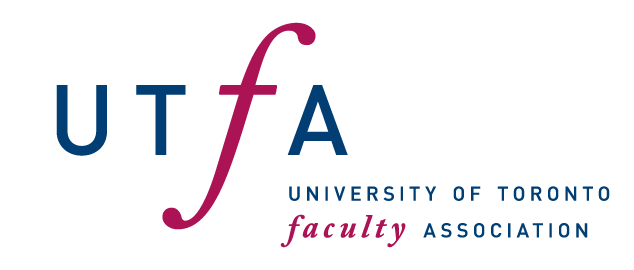New UTFA Settlement, July 2014 – June 2017
Following a lengthy period of bilateral negotiations, a new agreement for 2014–2017 was finally secured through a combination of mediation and arbitration in December of 2015. Across-The-Board salary increases, awarded by arbitrator William Kaplan, amounted to 5.5% over the life of the agreement. The overall value of the agreement, taking into account one-time-only increases and improvements in benefits, will be approximately 6.5%. The settlement compares well with recent settlements in our sector. Full details are available on the UTFA website.
Of particular note in the settlement, UTFA agreed to a 1% pension contribution increase that will come into effect on the last day of the current agreement (June 30, 2017). Offsets for this increase came in the form of flat dollar increases and an annual pro-rated payment into a Health Care Spending Account for all faculty and librarians, effective July 1, 2017. The multi-faceted settlement (which I would encourage all members to consult) also includes increases to amounts in the PTR pools, improvements in PERA and Research and Study Leave compensation, and revisions to the Workload Policy designed to further strengthen its underlying principles of transparency and collegiality. UTFA and the University administration also agreed to a fixed flat dollar ATB increase for 2016–17 on annual salaries above $158,000 and a corresponding increase in amounts available for PTR distribution. The Administration and the arbitrator resisted our proposal for fully augmented pension indexation, while in turn UTFA successfully resisted the Administration’s effort to restrict benefit improvements to pre-retirement faculty and librarians only. Members of UTFA’s bargaining team were generally pleased with the outcome of this round of bargaining, although they remain frustrated by the length of time needed to reach an agreement.
I would like to thank the members of the bargaining team:
- Bobby Glushko – Scholarly Communications and Copyright Librarian
- Paul Hamel – Professor, Department of Laboratory Medicine & Pathobiology
- Linda Kohn – Professor, UTM Biology
- George Milbrandt – Retired Professor, Faculty of Education
- Cynthia Messenger – Associate Professor, Teaching Stream, Director of the Writing and Rhetoric Program, Innis College
- Scott Prudham – Professor, Department of Geography and Planning and School of the Environment
- Katharine Rankin – Professor, Department of Geography and Planning
The team received expert advice and representation from Steven Barrett and Emma Phillips of Goldblatt Partners and from Hugh Mackenzie (Hugh Mackenzie & Associates).
I would also like to thank Chris Penn for managing the complex and ever-changing schedule of meetings and for providing us with all manner of logistical support throughout the process.
I want to single out UTFA’s General Counsel, Heather Diggle, for particular thanks. She provided the bargaining team with invaluable technical, legal, and editorial advice at every stage of this process. Her scrupulous attention to detail and her ability to keep the minutiae of multiple issues in her head at any given time made my job far easier and helped to ensure the success of our efforts.
Pension Reform
In response to government pressure, several universities in Ontario recently began exploring the possibility of developing a new, multi-employer Jointly Sponsored Pension Plan (JSPP). Discussions are proceeding among interested university administrations (under the auspices of the COU, the Council of Ontario Universities) and among faculty and staff unions and associations (under the auspices of OCUFA, the Ontario Confederation of University Faculty Associations). UTFA has participated in multiple meetings with these various parties and with our Administration and union representatives here at the University of Toronto. Conversion to a JSPP would offer greater transparency and a genuinely shared role in plan governance. Many believe that JSPPs also promise greater long-term political and fiscal sustainability. On the other hand, the JSPP model necessarily implies shared risk, and its long-term success will also depend, like any pension plan, on a sound design structure. UTFA intends to monitor all developments closely with a view to securing the most sustainable long-term model for our pension plan and with the intention of providing members with a full account of all options going forward. In addition to reporting on these developments to UTFA’s Executive and Council, we organized a town hall on the JSPP option in the fall of 2015, and we plan to hold another such town hall if and when a detailed proposal for conversion to a multi-employer JSPP has been tabled. We have posted documents pertaining to the multi-employer JSPP initiative on the web page of the Salary, Benefits, Pensions and Workload Committee.
Paul Downes
Vice-President, Salary, Benefits, Pensions and Workload
Chief Negotiator
